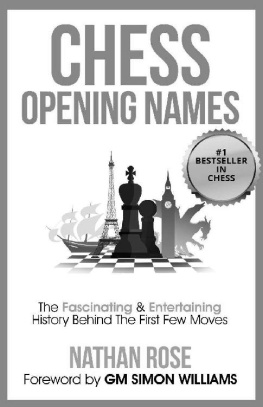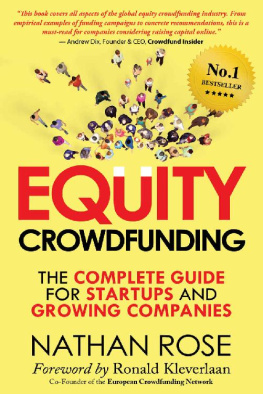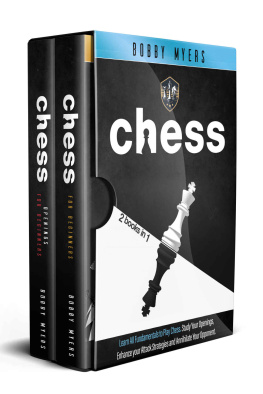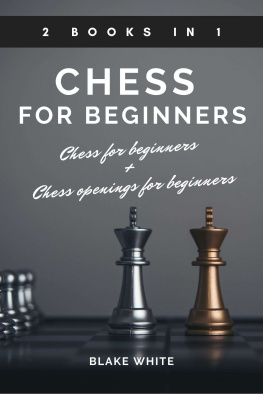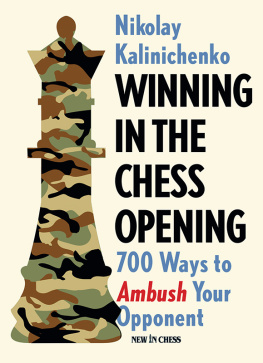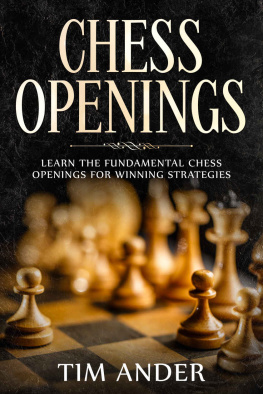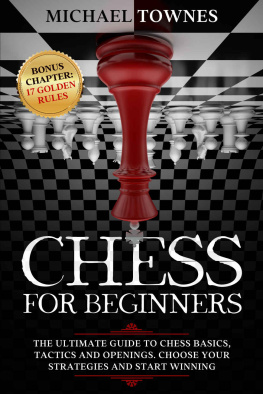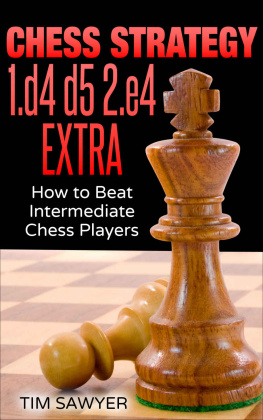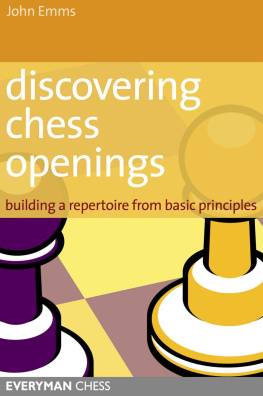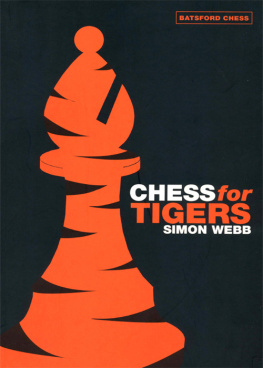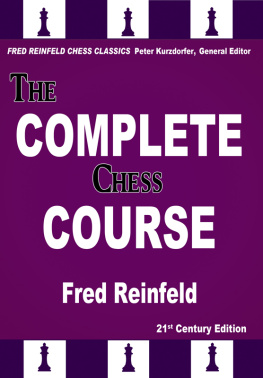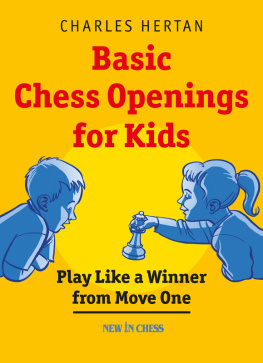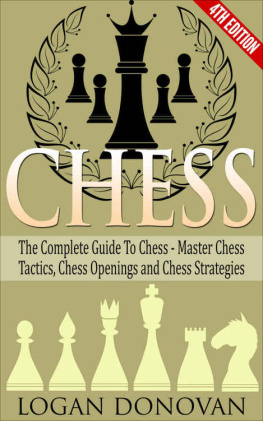Contents
Copyright 2017 Nathan Rose.
Stonepine Publishing, 1st Edition
ISBN: 978-0-473-39675-6
The moral right of the author has been asserted. All rights reserved.
No part of this publication may be reproduced in any form or by any electronic or mechanical means, including information storage and retrieval systems, without written permission from the author, except in the case of a reviewer, who may quote brief passages embodied in critical articles or in a review.
The information in this book is distributed on an as is basis, without warranty. The author shall have no liability to any person or entity with respect to any loss or damage caused or alleged to be caused directly or indirectly by the information contained in this book.
Although every precaution has been taken to ensure that the information in this book was correct at press time, the author does not assume and hereby disclaims any liability to any party for any loss, damage, or disruption caused by errors or omissions, whether such errors or omissions result from negligence, accident, or any other cause.
The author is not responsible for websites (or their content) that are not owned by the author.
Images appear throughout this book. These media files have been obtained through the public domain and/or exist in the creative commons.
Bonus Content
This books companion website is www.chessopeningnames.com . Once you have learned the story behind the chess opening names, you can learn how to master playing them via the professionally-produced video training courses on offer.
There are several free bonuses for readers of Chess Opening Names to download:
- A pgn file of all the openings and variations named in this book, so you can play through and practice them on your computer.
- A family tree index of all the moves named in this book for example, which moves are branches of the core openings, and the points at which the different names diverge.
- A video explanation of how algebraic chess notation works helpful for those who are not yet familiar with the meaning of script such as 1. e4 e5 , which is used throughout this book.
- Sample chapters of my other books.
To download these free bonuses, head to www.chessopeningnames.com , scroll to the Bonus Content section and use your email address to subscribe.
The website is also where I invite readers to share their feedback on Chess Opening Names. Please feel free to request the stories behind more names that didnt make it into this edition! If a name is requested frequently, I will add it to the website and to future editions of the book. Email subscribers will be the first to know about new opening names as they are added.
Foreword: GM Simon Williams
The wife is fed up.
For many nights now, her husband has locked himself, alone, in his home office. One night, tiptoeing to the door, she overhears a cryptic phone conversation; I tried a Slav last weekend, but it was rather unexciting. Next time Ill go for a Scandinavian! Yes queen takes d5 is the way I may continue .
Such language is foreign to her. What illicit activities is he concealing? The wife grows increasingly suspicious as her partner locks himself away more frequently, returns home late on weeknights looking stressed or upbeat, and takes more and more work-related trips on weekends with his phone switched off for several hours at a time.
Enough is enough. The wife makes the necessary arrangements to track her husbands movements and catch him in the act once and for all. She discovers he is visiting the same location on a regular basis a mid-priced hotel in a far-flung town.
She decides it is time to confirm her worst fears. As he sets off on one of his Friday-to-Sunday business trips, she stealthily follows behind under the cover of the evening darkness. Bursting into the hotel, she finds her husband, prone, deep in concentration. Its worse than I could possibly have imagined! , she exclaims incredulously, He has taken up chess! .
Though the above story is a work of fiction, the underlying theme is not unknown to chess players and their non-chess playing partners. Those who are not familiar with the game are bemused by the intricate language the chess enthusiast adopts. The Fried Liver Attack sounds like something out of a B-rated horror film. Statements such as I got myself tied up in a Marczy Bind are downright strange to the novice of chess, but become second nature to the developing player. By employing a specialist lexicon, chess players feel part of a secret society. It transcends ordinary barriers and unites players worldwide, regardless of their native language.
Many of these special code names are found within the chess players constant obsession: opening theory. This is not the first book to be written on chess openings, and it wont be the last. In fact, chess publishing is absolutely dominated by it; hundreds of books are published each year; countless papers, diagrams and games are devoted to just one variation of one opening!
It would be impossible to know all the variations to all the chess openings; after just five moves, there are more possibilities than grains of sand in the sea. But all players must have wondered, as they are studying and preparing, where did all these names come from? Alekhines Defense is not the Alekhines Defense for nothing! Isnt the Giuoco Piano a classical instrument? Is the Grand Prix Attack covertly sponsored by Formula 1?
This book answers these questions and many more. It is a new and unique look at the chess openings from an informative and historical perspective, accessible to the chess-obsessed and non-chess players alike. Rather than bore the reader with deep technical analysis, Nathan Rose aims to explain the origin of the nomenclature of many common openings and variations; introducing the fascinating personalities, locations and tales behind their invention and development. All this is done in a manner which is well-defined, structured and, most importantly, fun. After all, fun is the main reason we play chess!
Im certain that all readers, new and seasoned, young and old, will enjoy this overview on the origins of chess opening names. It is not the best kept secret that I progressed from club player to master based on my nightly readings of tactics books from the comfort of my bath. Had it been published, Im sure that this book would have been high on my reading list!
On a personal note, whether you are new to chess, or a knowledgeable (and now slightly worn out and despondent) grandmaster, I would like to remind readers that chess is a wonderful game which can enrich your life in so many ways. It has allowed me to travel the world while meeting and playing other like-minded people.
During my chess career, I have been fortunate to make the acquaintance of some of the most interesting characters in society; the slightly nerdy accountant-types, the eccentrics, the egomaniacs, the young whippersnappers, the mad geniuses. All have been bitten by the chess bug and once you are bitten, there is no cure!
The beauty of chess is it can be whatever you want it to be. It transcends language, age, race, religion, politics, gender and socioeconomic background. Whatever your circumstances, anyone can enjoy a good fight to the death over the chess board.
It is important to have a creative pursuit; whether that be making or enjoying music, the visual feast of an art gallery or knitting tiny hats for cats! My art is created on a 64-square board, and it has brought an immeasurable amount of pleasure to my life.
Chess doesnt drive people mad, it keeps mad people sane . - Bill Hartston
Grandmaster Simon Williams
www.gingergm.com
Introduction
Why do people play chess?
Many complex theories have been advanced to explain the games enduring popularity, but I have a very simple one: humans like to prove how clever they are to each other. Winning at chess is one way to prove yourself as superior, but it is far from the only way. For example, an extensive knowledge of history will do the job every bit as effectively.

